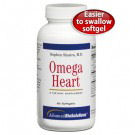A dietary supplement, according to the Dietary Supplement Health and Education Act (DSHEA) of 1994, “is a product taken by mouth that contains a dietary ingredient intended to supplement the diet.” Dietary ingredients in dietary supplements must be either vitamins, minerals, herbs or other botanicals, amino acids, enzymes or tissues from organs or glands or concentrates, metabolites, constituents or extracts that can be used to increase the total dietary intake.
Prior to October of 1994, dietary supplements were subject to the same regulations as any other food. When President Clinton signed the DSHEA, a new regulatory framework for safety and labeling of dietary supplements was instituted.
Under the new act, a company that manufactures a dietary supplement is responsible for determining if that dietary supplement is safe for consumption. That company also is responsible for making sure that any claims it makes about the dietary supplement it sells can be substantiated and that nothing about those claims is false or misleading.
Companies that make and sell dietary supplements must provide the FDA with information about “new” dietary ingredients so that the FDA may review the new ingredients before the supplement containing that new ingredient hits the market. A new dietary ingredient is one that was not in a supplement prior to October 15, 1994.
It should be noted that there are no comprehensive lists of ingredients that were marketed prior to October 15, 1994. The manufacturer of a dietary substance is responsible for deciding whether any ingredients it uses are “new ingredients.” If the company decides that none of the ingredients are new, there’s no need to inform the FDA.
The bottom line is this: dietary supplements do not need FDA approval before they are marketed. Dietary supplements that are sold over-the-counter and on the Internet are under-regulated by the FDA. In fact, any firm that manufactures dietary supplements is responsible for deciding if ingredients need to be registered with the FDA.
This has lead to many cases where “impure” dietary supplements are sold over-the-counter and on the Internet. These supplements are adulterated with substances that can make the supplement poisonous or unhealthy to ingest. The impure supplement “presents a reasonable risk of illness or injury when used in accordance with suggested labeling.” (DSHEA)
Companies that make dietary supplements are therefore responsible for overseeing the safety of their own products. Not every company that makes dietary supplements is scrupulous about policing their own actions.
Dr Sinatra assures you that every single dietary supplement that is made has met stringent requirement for potency and for purity. Every formula has gone through dozens of safety checks at every point from the raw ingredients to the finished product. You will always be getting the freshest, purest and most stable supplements on the market today.
You can trust everything you take from DrSinatra.com.
|


